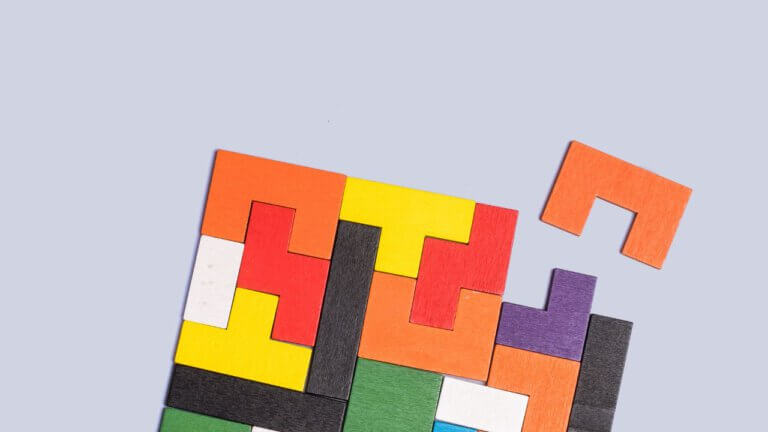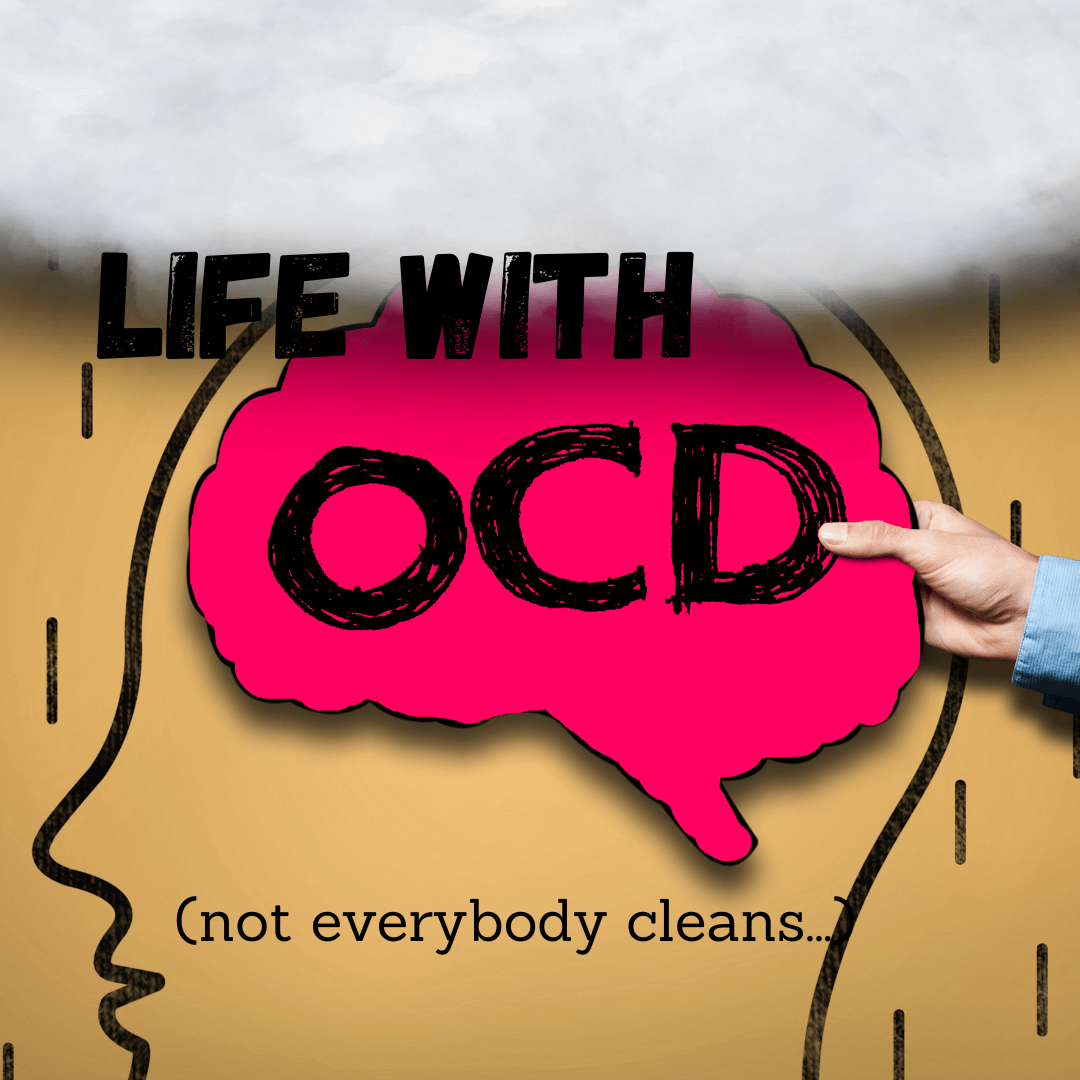Life With OCD: Not Everybody Cleans
A Person affected by OCD (obsessive-compulsive disorder) might be known to you as a person who is constantly cleaning. If you are unfamiliar with this term, imagine Monica from the TV series Friends; she’s a textbook example.
It is good to know, however, that OCD is an anxiety disorder: a person with OCD suffers from anxiety and insecurity, and so their rituals bring safety into their livers. We hate things that we cannot control: like you know… life!
The rituals, like washing your hands every 5 minutes or vacuum cleaning your house every time you get home from work, bring safety and order into the mess of life.

What Really Defines the Life With OCD
The obsession with cleaning helps because when you clean your flat, wash your car, or wash the dishes, you get visible results immediately. It provides dopamine and satisfaction because the consequence is observable and measurable. It is relatively easy to get the perfect effect. People with OCD adore the moments when they deliver the perfect job; it helps to soothe the constant feeling of insecurity.
Moreover, people with OCD hate messy stuff. We shudder when books in our library are not in alphabetical order. We strive to create order in our lives as well. If you go on a vacation with someone suffering from OCD, expect a detailed itinerary and relax; they will probably have figured out all the details for you before you even start thinking about the holiday.

Life With OCD Or a Simple Characteristics
Psychologists say that the line between OCD, a real disorder, and a simple personality trait is thin. Not everybody who likes to have order in life suffers from OCD or any kind of disorder; we are all different. However, our desire for order and control becomes a disorder when, for the sake of remaining in control, we make life with OCD difficult for ourselves and other people.
Thus, it depends on the circumstances. If you live alone and can arrange your life however you feel, you may never know you suffer from OCD.
You must leave your house to realize that bus buses don’t always come on time and people don’t live by an itinerary. On the other hand, it is a terrible burden to be a mother suffering from OCD. You know children are always messy, there’s always mess in your household, and if you don’t accept, if you try to fight it, then you’re on your way to a disaster.
But remember, stereotypes are a great helper, but they don’t apply to everybody. So, not every person concerned with OCD is constantly cleaning. We have other symptoms, some more likely and some more surprising.
I have suffered from OCD all my life, and I detest cleaning. You wouldn’t guess from the state of my floors, the bathroom sink, or my disarrayed bed sheets that you are dealing with a person suffering from severe OCD. I feel like housework keeps me from doing something more meaningful and pleasant. So, the anxious shrew in my head had to find another way to show herself.

I love playing Tetris. This game is elegant proof that everybody enjoys bringing order to a messy world from time to time. When you place the piece precisely in the spot where it belongs and fits perfectly, it brings immeasurable pleasure. I play with Lego; I put the chips directly next to each other, creating the perfect line and keeping one hole in the line to finally place a perfectly fitting piece in the space.
Do you love coloring? You might admire how the boring black-and-white stuff comes to life. But that is the not case for OCD cases. We love coloring because we can color the picture piece by piece. Unlike messy, authentic life images, coloring pages come to life one by one; every little spot gets its color. Suppose your friend walks into your kitchen and adjusts the magnets on your fridge into a perfect line.
In that case, you have a friend with OCD or similar personality traits.
Yesterday, I sat in a class meeting, listening to the teacher explaining our duties as parents of first years, and the whole session, which took over an hour, I watched magnets on the board. There were four of them, arranged in a square, but one was a little array. What do you think was the first thing I did as I got up from my chair? As I formed the perfect square again and felt the relief. I was a little surprised that I was the only one in the class who noticed.
That is what life with OCD looks like. You enjoy Tetris, and you suffer when you see a line of cars where one is larger than the others. You shiver when you see ten perfect trees next to each other and among them a stump. And you suffer when your living room is full of toys of various colors and sizes and the fact that your children don’t always put the toys in the correct boxes.
And seem to be OK with that.
There are different forms and different degrees of OCD. Some people wash their hands every five minutes, but it’s not the cleaning or the fear of dirt or germs that defines us. It is the desperate endeavor to deliver order in life. Hopeless because doomed to fail. What defines us is our inability to accept that we don’t have control and our failure to see that the world still can be safe even when the lines are a little blurry.
But even if you enjoy Tetris and putting Lego pieces in a perfect line, even if you love to have a neatly organized vacation schedule, it still does not mean you suffer from any disorder. Mental disorders are simply personality traits that get an extreme angle. Moreover, we all tend to control things and rely on rituals when we are insecure. Accepting the uncertainty when you are OK and feel safe is easier. The problem with us who suffer from anxiety disorder is that we rarely feel safe.

As hard as it is for us with OCD to accept it, people are different. We would be much happier placing everybody in precisely defined categories. Yet, there are no neatly organized boxes that fit our lives. Some people are more organized, and some are more chaotic; if you’re happy with that and don’t want to change yourselves or the people around you, you’re probably fine. Our anxiety-based problem is that it is hard to accept that chaos is healthy because chaos means life. Only anorganic matter remains in perfect order.
Because I love fairy tales, I always recommend movies or books to read to understand things. Watch the Lego movie. The film is about the constant struggle between the desire for creativity and chaos that brings life and the desperate craving for order and control that petrifies and freezes all life. Guess what side the hero is on in the movie.
And if you are more into reading the classic, try The Snow Queen by Hans Christian Andersen.
Ignore the religious implications and focus on the contrast between the cold, perfect beauty of winter and the warm glory of roses that only the living heart appreciates and the frozen heart of the boy cannot accept.
Staying in the fairy tale realm, it is no coincidence that the clearly traumatized and constantly insecure Elsa from Frozen is the queen of ice. Snowflakes represent the perfectly controlled beauty in the cultural subconscious.
Read and watch fairy tales; they contain wisdom, present the archetypes, and teach you to understand people around you.



